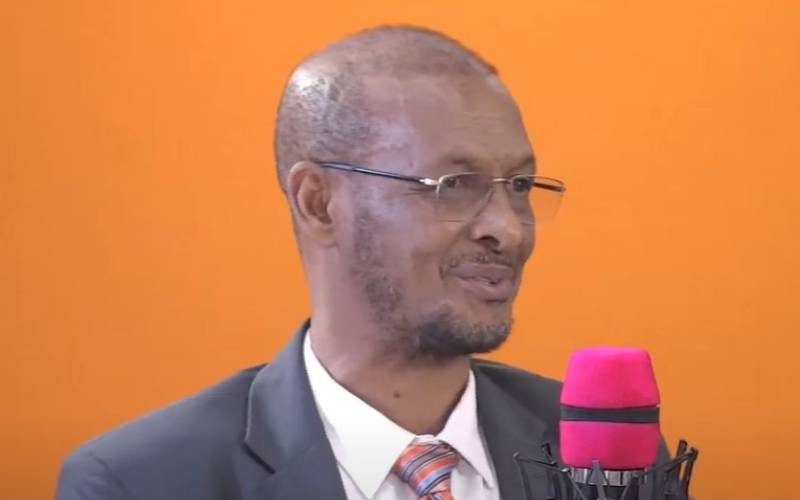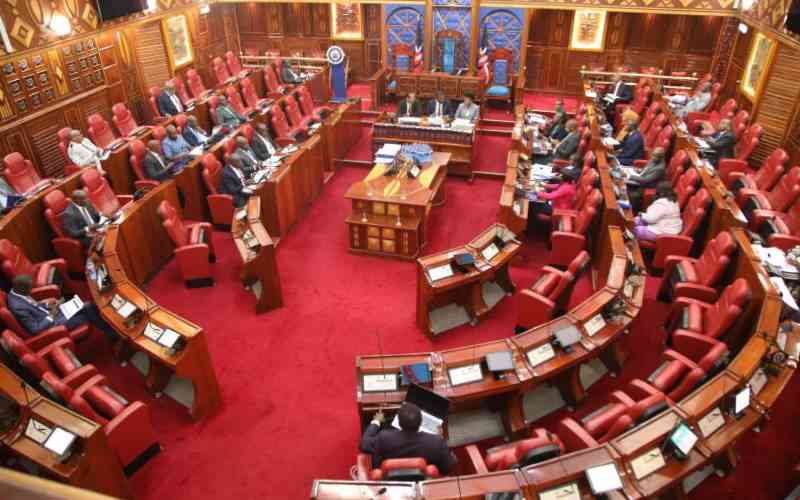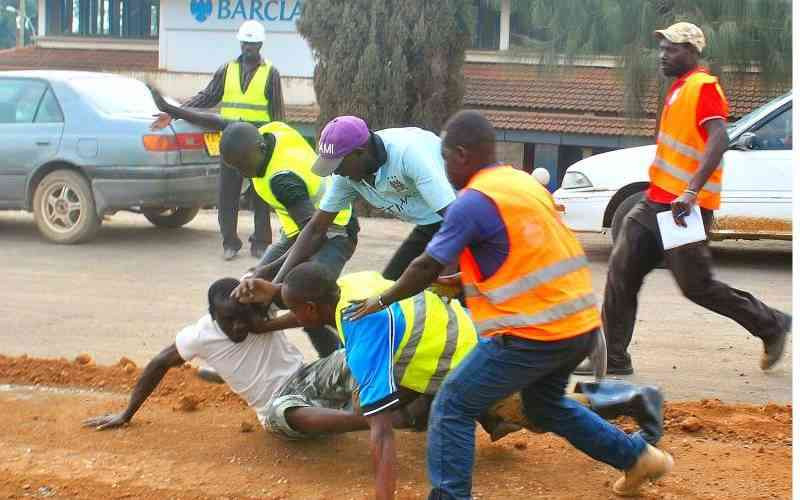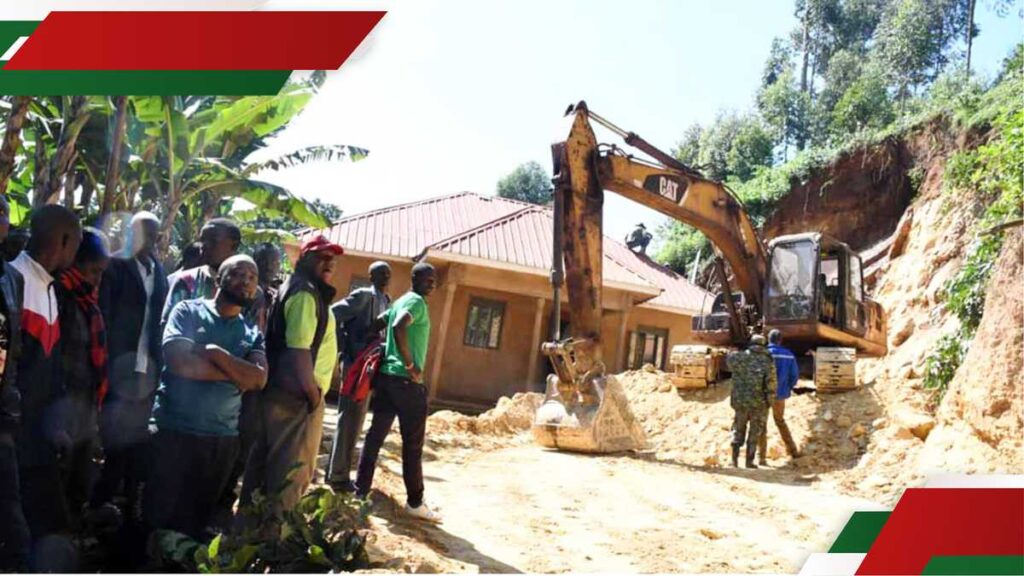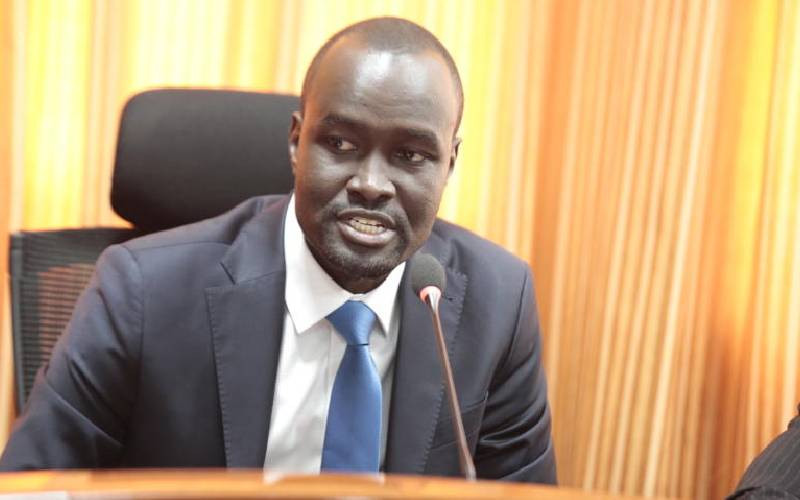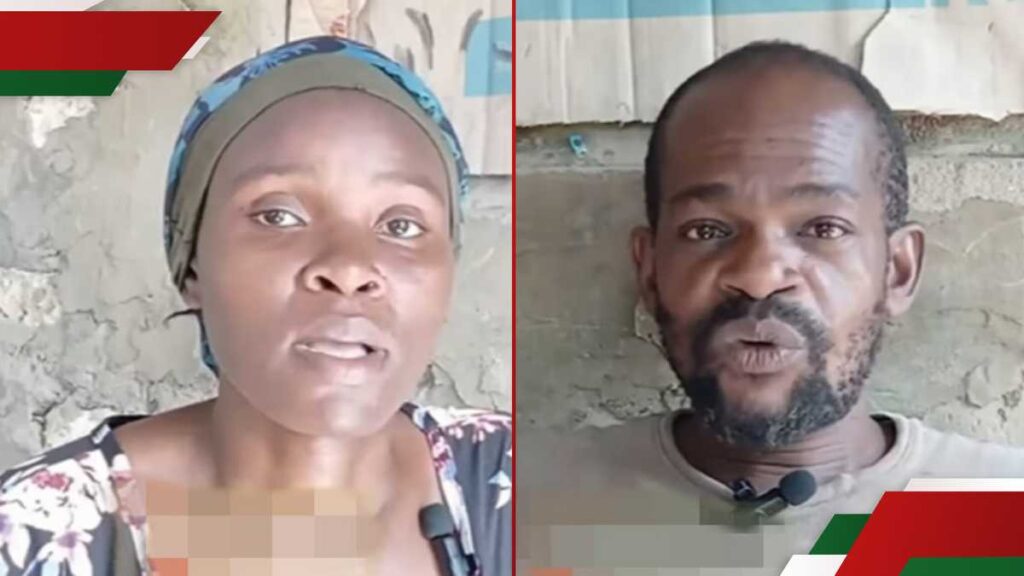The National Police Service (NPS) has issued a stern condemnation of mob justice, warning that citizens taking the law into their own hands undermines Kenya’s justice system and risks plunging the country into anarchy.
“It is unacceptable for individuals to act as arresting agency, jury, and executioner,” said NPS Spokesperson Muchiri Nyaga during a press briefing.
“Our Constitution, under Article 50, presumes every suspect innocent until proven guilty by a court of competent jurisdiction. Mob justice disregards this fundamental principle, eroding the rule of law.”
Nyaga urged Kenyans to respect legal processes, emphasizing that mob justice is not only illegal but also frequently results in the victimization of innocent people, often due to mistaken identity or unverified accusations.
“Obedience to our laws and institutions is the dignified approach, not emotional or impulsive responses to crime. Such acts can spiral into lawlessness and disorder, threatening the very fabric of our society,” he stated.
He further cautioned that engaging in mob justice is a criminal offense, punishable under the law, with perpetrators facing charges such as assault, murder, or incitement.
Nyaga encouraged citizens to channel their frustrations into advocating for systemic improvements in the justice system rather than resorting to vigilantism, which often exacerbates injustice.
Despite these warnings, incidents of mob justice have surged across Kenya, reflecting deep-seated frustrations with the country’s criminal justice system. On June 12, 2025, four cases were reported in Busia, Kisumu, Siaya, and Bomet counties, highlighting the widespread nature of this issue.
In Malaba, Busia, police rescued 22-year-old Emmanuel Omachar from a mob after he was caught with stolen household goods. The crowd had already begun beating him, accusing him of repeated thefts in the area.
In Kisumu’s Kondele area, 24-year-old Wesley Omondi narrowly escaped death after being attacked for alleged habitual theft, with residents claiming he had terrorized the community for months. In Siaya’s Bondo area, police intervened to save 18-year-old Suleiman Musa and 25-year-old Abdi Karim, who were accused of defrauding residents through M-Pesa scams.
In Chemagel village, Bomet, 21-year-old Vincent Kiplangat was seriously injured after stealing a chicken, an act that incited a mob to attack him with crude weapons.
The trend continued unabated on June 13, with incidents reported in Nyandarua, Bungoma, Homa Bay, and Kisumu. In Nyandarua’s Kenyatta village, Njoroge Kanene and his accomplice, Gumba, were killed, and their bodies burned after they were caught slaughtering a stolen sheep.
The gruesome act shocked the local community, with some residents defending the mob’s actions as a response to repeated livestock thefts. In Bungoma’s Kabula location, 30-year-old Simon Simiyu Misiko was severely injured for breaking into a private school’s store, with the mob claiming he intended to steal food supplies meant for students.
In Homa Bay’s Kosele, 28-year-old Felix Otieno was lynched for stealing household items, including utensils and clothing.
Stay informed. Subscribe to our newsletter
In Kisumu’s Otonglo, 38-year-old Wycliffe Ochieng was beaten for defrauding an M-Pesa agent of KSh 17,250, leaving him with critical injuries.
On June 14, six cases were reported across the country. In Kisii, 24-year-old Joseph Moturi Ombatia was beaten to death for stealing maize from a local farm, with the mob accusing him of contributing to food insecurity in the area.
In Makueni’s Wote town, a man was seriously injured for allegedly attempting to steal from a woman’s shop.
In Trans Nzoia’s Matisi, police rescued an unconscious man after a mob attacked him for suspected theft, while another man in the county’s Kanachi area was beaten for attempting to break into a shop. In Kisumu’s Manyatta, a man was attacked for allegedly belonging to a gang terrorizing residents, though he denied the accusations.
In Kitui’s Kalama, 35-year-old Alex Kyalo John was lynched for stealing pumpkins, a minor offense that sparked a disproportionate response.
On June 15, four additional incidents occurred. In Siaya’s Nyasumbi, a man was beaten to death by boda boda operators for stealing a motorbike, a critical source of livelihood for many riders.
In Nyeri’s Naromoru, 29-year-old Adamson Kariuki was attacked for stealing iron sheets, leaving him with severe injuries. In Trans Nzoia’s Kiminini, 25-year-old Enock Simiyu Sikanga was beaten for allegedly stealing a motorcycle, while in Kisumu’s Kobewa, 28-year-old Mourice Otieno Okeyo was lynched after violently attacking a villager and destroying property.
The violence persisted on June 16, with eight people facing mob justice. In Kilifi’s Kiwandani, 39-year-old James Charo Mutiti was rescued and hospitalized after being caught stealing a shower tap.
In Busia, Nicholas Omondi was saved from a mob accusing him of stealing a phone. In Bungoma’s Sangalo village, Amos Amachuma was seriously injured for assaulting his wife and a Nyumba Kumi official, prompting the community to retaliate.
In Embu’s Kamavindi, 24-year-old Erick Muaranguri Kamemia and Robert Mugendi Njeru were rescued after being beaten for burglary. In Kericho, 30-year-old Gilbert Cheruiyot was attacked for stealing a cow, a significant loss in a region where livestock is a key asset.
In Nairobi’s Umoja Three, two motorbike-riding suspects were lynched for snatching a phone, highlighting the dangers faced by urban residents.On June 17, six suspects faced mob attacks in Trans Nzoia, Kisii, Homa Bay, Mombasa, Siaya, and Kakamega.
In Trans Nzoia’s Nmaisambu, 29-year-old Emmanuel Simiyu was hospitalized after confessing to theft under duress. In Homa Bay’s Karota market, 23-year-old Kennedy Nyakundi Morara was seriously injured for stealing a motorcycle. In Mombasa’s Likoni, a suspect was caught attempting to rob a shopkeeper, narrowly escaping death.
In Siaya’s Nyandiwa, a man was critically injured, and in Kakamega’s Kimang’et, an M-Pesa fraud suspect was hospitalized after a brutal attack.
Incidents persisted on June 18 in Nairobi, Makueni, Bungoma, and Kakamega, with similar patterns of theft and fraud triggering mob violence.
On June 19, five cases were reported in Kilifi, Nairobi, Nakuru, Embu, and Busia, including fatalities and severe injuries. The trend continued through June 20–30, with multiple incidents across counties like Mombasa, Kisii, Tharaka Nithi, Kajiado, Kirinyaga, Kakamega, Nyeri, and Migori, involving crimes ranging from petty theft to violent assaults.
The surge in mob justice reflects deeper systemic issues within Kenya’s criminal justice system. Hussein Khalid, CEO of VOCAL Africa, attributes the phenomenon to widespread distrust in the police and judicial institutions.
“Corruption, inefficiency, and delays in case resolution have eroded public confidence, pushing Kenyans to take matters into their own hands,” Khalid said.
He noted that in many communities, residents feel that reporting crimes to the police yields little action, either due to bribery or lack of resources. This frustration, coupled with economic hardships and rising crime rates, creates a volatile environment where mob justice becomes a misguided outlet for anger.
Khalid called for urgent reforms in the police service, including better training, increased accountability, and faster response times to restore public trust. However, he emphasized that citizens must resist the temptation of vigilantism, which often punishes the innocent and escalates conflicts.
“Justice must be fair, evidence-based, and delivered through accountable institutions. Kenyans deserve a trustworthy criminal justice system, not a choice between silence and savagery,” he said.
To address the root causes of mob justice, experts suggest a multi-faceted approach. Strengthening community policing initiatives, such as the Nyumba Kumi framework, could improve trust between residents and law enforcement.
Additionally, public awareness campaigns on the dangers of mob justice and the importance of due process could shift societal attitudes. Investments in judicial infrastructure to reduce case backlogs and ensure timely prosecutions are also critical. Without these reforms, the cycle of vigilantism is likely to persist, threatening Kenya’s stability and social cohesion.
In conclusion, while the NPS and civil society leaders continue to condemn mob justice, the persistence of these incidents underscores the urgent need for systemic change. Only through a reformed, transparent, and efficient justice system can Kenya hope to curb the rising tide of vigilantism and restore faith in the rule of law.



